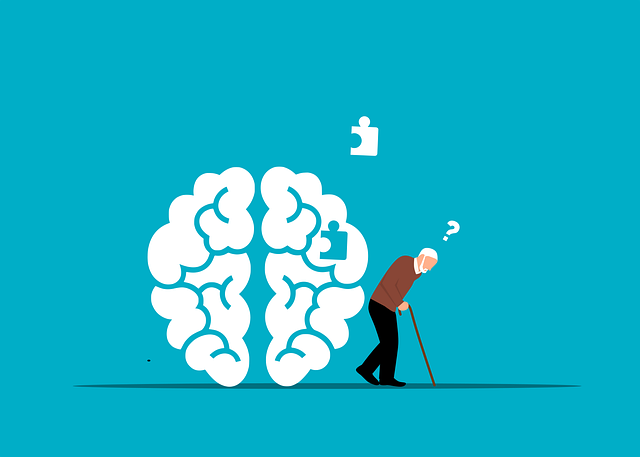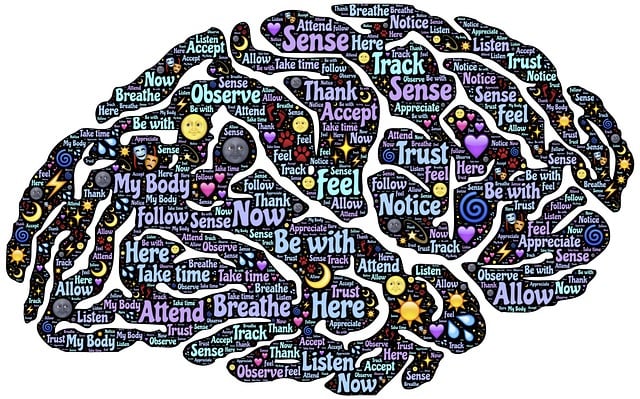Mental wellness is a holistic approach to overall well-being, focusing on emotional, psychological, and social health. Prioritizing mental wellness involves self-care practices like empathy building, emotional intelligence, mindfulness meditation, exercise, and creative outlets. Denver Drug Abuse-Substance Abuse Therapy emphasizes the mind-body connection and offers evidence-based practices like CBT and DBT to enhance resilience and reduce burnout. A dynamic, evolving self-care routine includes regular reflection, setting realistic goals, and integrating social aspects for improved mental health and overall well-being.
In today’s fast-paced world, prioritizing mental wellness is more crucial than ever. This comprehensive guide explores the art of cultivating a self-care routine tailored to your unique needs, drawing insights from experts like Denver Drug Abuse-Substance Abuse Therapy. By understanding mental wellness and employing evidence-based practices, you can craft a balanced routine that nurtures mind, body, and spirit. Discover practical tips to integrate resilience-building activities and maintain a sustainable self-care regimen for optimal well-being.
- Understanding Mental Wellness and Self-Care
- Identifying Personal Needs and Priorities
- Crafting a Balanced Routine: Mind, Body, and Spirit
- Integrating Evidence-Based Practices for Resilience
- Sustaining and Adjusting Your Routine Over Time: Tips from Denver Drug Abuse-Substance Abuse Therapy
Understanding Mental Wellness and Self-Care

Mental wellness is a holistic concept encompassing our emotional, psychological, and social well-being. It’s about recognizing and valuing our unique strengths, managing stress, and cultivating positive relationships. In today’s fast-paced world, prioritizing mental health is essential for navigating life’s challenges with resilience. Self-care, a crucial aspect of mental wellness, involves intentional activities that nurture and support our overall mental state.
Developing a self-care routine isn’t about indulging in luxuries; it’s a practice rooted in the idea of “mind over matter.” Strategies such as empathy building and emotional intelligence play pivotal roles in enhancing mental wellness. By incorporating these principles into daily life, individuals can foster resilience, improve coping mechanisms, and create a healthier relationship with themselves. Denver Drug Abuse-Substance Abuse Therapy emphasizes the importance of self-care as a preventive measure and an essential tool for recovery, aligning perfectly with the mind-body connection at the heart of mental wellness.
Identifying Personal Needs and Priorities

In navigating the path to a robust mental wellness self-care routine, the first step is introspective—identifying your personal needs and priorities. This journey begins with acknowledging and understanding one’s unique emotional landscape, especially in the context of Denver drug abuse-substance abuse therapy. Many individuals struggling with addiction also face challenges related to mental illness, making it crucial to integrate therapeutic practices that address both. Through reflective exercises, journaling, or even professional counseling, individuals can uncover their specific triggers, emotional responses, and aspirations for personal growth. This introspective practice is a foundation for tailoring self-care rituals that resonate with one’s authentic self.
Prioritizing mental wellness involves recognizing the interconnectedness of various aspects of life—from physical health to social connections and meaningful activities. Incorporating practices such as mindfulness meditation, regular exercise, or creative outlets can aid in emotional healing processes and reduce the stigma surrounding mental illness. Moreover, setting realistic goals and boundaries ensures that one’s self-care routine remains sustainable and supports overall well-being. By aligning personal priorities with therapeutic strategies, individuals can create a holistic approach to mental wellness that fosters resilience and emotional regulation.
Crafting a Balanced Routine: Mind, Body, and Spirit

Creating a holistic self-care routine is an essential aspect of mental wellness, encompassing the intricate connection between mind, body, and spirit. In today’s fast-paced world, burnout prevention strategies for healthcare providers are more critical than ever, making coping skills development and resilience building paramount. A balanced routine involves integrating activities that nourish each component, ensuring overall well-being.
For many, this might include dedicated time for exercise or mindfulness practices, which have been shown to reduce symptoms of anxiety and depression. In Denver, drug abuse-substance abuse therapy services are readily available, offering individuals support in addressing underlying issues. Whether it’s exploring nature, engaging in creative outlets, or practicing gratitude journaling, these activities promote self-reflection and a deeper connection with oneself. By incorporating such practices into daily life, one can foster resilience, enhance coping abilities, and prevent burnout, ultimately leading to improved mental health and a more fulfilling life.
Integrating Evidence-Based Practices for Resilience

Incorporating evidence-based practices is a cornerstone in building a robust mental wellness self-care routine. Techniques such as cognitive behavioral therapy (CBT), mindfulness meditation, and dialectical behavior therapy (DBT) have been rigorously studied and proven effective in various settings, including Denver Drug Abuse-Substance Abuse Therapy programs. These therapeutic approaches empower individuals to develop resilience by identifying and changing negative thought patterns, enhancing emotional regulation skills, and promoting healthier coping strategies.
A comprehensive self-care routine should also address social aspects of mental health. Social Skills Training, often integrated into broader healthcare provider Cultural Competency Training, can help foster meaningful connections and improve overall well-being. Additionally, staying informed about Mental Health Policy Analysis and Advocacy ensures that individuals have access to supportive resources and services in their communities.
Sustaining and Adjusting Your Routine Over Time: Tips from Denver Drug Abuse-Substance Abuse Therapy

Developing a mental wellness self-care routine is an ongoing process, and just like any journey, it requires adaptability and patience. Over time, what works for someone may evolve or change entirely, especially when dealing with complex issues such as substance abuse. Denver Drug Abuse-Substance Abuse Therapy offers valuable insights on sustaining and adjusting self-care routines effectively.
They emphasize the importance of flexibility, suggesting that individuals should view their self-care as a dynamic practice rather than a rigid set of rules. Regular reflection and assessment are key; by periodically reviewing what activities promote well-being and which may need updating, one can tailor their routine to changing needs. For instance, practices like compassion cultivation and emotional healing processes through Trauma Support Services can be integrated into self-care regimens as individuals grow and heal. These adjustments ensure that the routine remains relevant and supportive throughout life’s twists and turns.
Developing a personalized mental wellness self-care routine is a transformative journey. By understanding the importance of mental health, identifying your unique needs, and incorporating balanced practices for mind, body, and spirit, you can foster resilience. Integrating evidence-based techniques from experts like Denver Drug Abuse-Substance Abuse Therapy ensures a robust foundation. Sustaining this routine involves regular reflection and adjustments to meet evolving needs, allowing for continuous growth and improved mental well-being.














